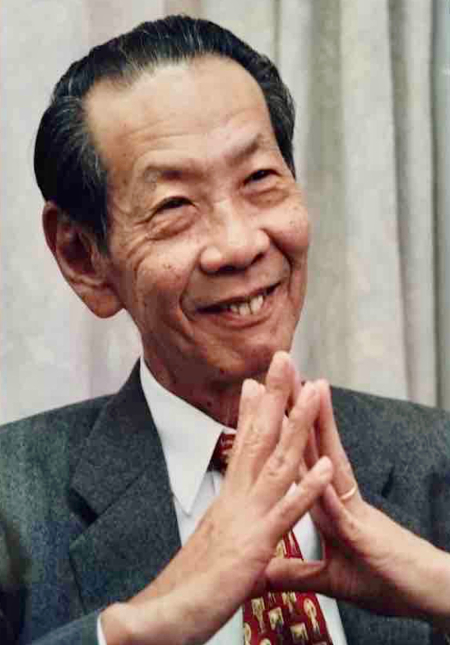
 福田圆现为日本法政大学法学部国际政治学系教授,她在日本庆应义塾大学取得政策媒体硕士学位(2005)与博士学位(2011),曾任日本国士馆大学21世纪亚洲学部专任讲师(2009-2012)丶副教授(2013)丶日本法政大学法学部国际政治学系副教授(2014~2016),专长为东亚国际关系丶中国外交丶两岸关系。她也曾在就读博士班期间获得台湾奖学金,前往国立政治大学东亚研究所留学。
福田圆现为日本法政大学法学部国际政治学系教授,她在日本庆应义塾大学取得政策媒体硕士学位(2005)与博士学位(2011),曾任日本国士馆大学21世纪亚洲学部专任讲师(2009-2012)丶副教授(2013)丶日本法政大学法学部国际政治学系副教授(2014~2016),专长为东亚国际关系丶中国外交丶两岸关系。她也曾在就读博士班期间获得台湾奖学金,前往国立政治大学东亚研究所留学。Full Text
簡体字 / 正體字 / English摘要:
第一篇论文〈日中邦交正常化〉是由前日本驻美大使栗山尚一于1999年所发表。栗山时任外务省条约局条约课课长,参与了日中邦交正常化的谈判。在此文当中,栗山通过自身的回忆,探讨了负责辅佐田中角荣首相及大平正芳外相的外务省如何检讨并解决伴随着日中邦交正常化牵涉的国际法问题。
本论文探讨的核心问题,就是如何在日美安保条约体制下谈判日中邦交正常化后的台湾法律地位问题,这是日中谈判中最大的问题之一,而谈判的结果总结在《日中共同声明》第三条之中。栗山认为,尽管该条表明日本接受《波茨坦公告》,接受台湾归还给‟中国”。但其中的言外之意是,日本政府并不认为,不受中华人民共和国实质统治的台湾实际上是该国领土的一部分。
第二篇论文则说明,第一篇论文讨论的日美安保条约体制,以及日中关系在正常化以来如何处理台湾问题(文中称为‟1972年体制”)之间的关系,历经冷战终结到美中之间的‟新冷战”,目前正在动摇。首先简述日本与中国之间为了处理台湾问题,是在什么样的国际背景下成立了‟1972年体制”。并且以粟山的论文作为主要的引用依据,整理‟1972年体制”成立的过程与其内涵,接着回顾粟山的论文在冷战结束后发表的时期,‟1972年体制”如何被争论又重新被确立的过程。最后说明为何‟1972年体制”再次于现在受到重大的挑战。
摘要:
第一篇論文〈日中邦交正常化〉是由前日本駐美大使栗山尚一於1999年所發表。栗山時任外務省條約局條約課課長,參與了日中邦交正常化的談判。在此文當中,栗山透過自身的回憶,探討了負責輔佐田中角榮首相及大平正芳外相的外務省如何檢討並解決伴隨著日中邦交正常化牽涉的國際法問題。
本論文探討的核心問題,就是如何在日美安保條約體制下談判日中邦交正常化後的台灣法律地位問題,這是日中談判中最大的問題之一,而談判的結果總結在《日中共同聲明》第三條之中。栗山認為,儘管該條表明日本接受《波茨坦宣言》,接受台灣歸還給「中國」。但其中的言外之意是,日本政府並不認為,不受中華人民共和國實質統治的台灣實際上是該國領土的一部分。
第二篇論文則說明,第一篇論文討論的日美安保條約體制,以及日中關係在正常化以來如何處理台灣問題(文中稱為「1972年體制」)之間的關係,歷經冷戰終結到美中之間的「新冷戰」,目前正在動搖。首先簡述日本與中國之間為了處理台灣問題,是在什麼樣的國際背景下成立了「1972年體制」。並且以粟山的論文作為主要的引用依據,整理「1972年體制」成立的過程與其內涵,接著回顧粟山的論文在冷戰結束後發表的時期,「1972年體制」如何被爭論又重新被確立的過程。最後說明為何1972年體制再次於現在受到重大的挑戰。
Abstract:
The first article, “Normalization of Diplomatic Relations between Japan and China, ” was published in 1999 by Takakazu Kuriyama, a former Japanese Ambassador to the United States, who was involved in the negotiations for the normalization of diplomatic relations between Japan and China as Director of the Treaty Division, Treaty Bureau, Ministry of Foreign Affairs (MOFA). In this article, Kuriyama discusses how the MOFA, which was in a position to support Prime Minister Tanaka and Foreign Minister Ohira, examined and resolved some issues of international law that accompanied the Sino-Japanese normalization, using his recollections.
The central issue of this article is the Japan-U.S. security treaty regime and the issue of Taiwan's legal status after the Sino-Japanese normalization. This was one of the biggest issues in the normalization negotiations, and the outcome of the negotiations is summarized in the third paragraph of the Japan-China Joint Statement. Kuriyama argues that although the paragraph indicates that Japan accepted the “Potsdam Declaration” and converted Taiwan into “China, ” its unspoken meaning was that the Japanese government took the position that Taiwan was not considered to be part of the territory actually governed by the People's Republic of China at the time of the normalization.
The second article argues that the relationship between the Japan-U.S. security treaty regime is discussed in the first article. The treatment of the Taiwan issue in Japan-China relations since the normalization of diplomatic relations between the two countries (referred to as the “1972 regime” in this article) is now in turmoil following the end of the Cold War and the emergence of the “New Cold War” between the United States and China.
This article will begin with an overview of the international background at the time when the “1972 Regime” was established between Japan and China regarding the Taiwan issue, and then summarize the background of the establishment of the “1972 Regime” and its implications, mainly citing the Kuriyama’s article. The article then reviews the process by which the “1972 Regime” became a point of contention and was reaffirmed in the period after the end of the Cold War in the 1990s when the Kuriyama article was published. Finally, the article will explain why the “1972 Regime” is now being rechallenged.